The Aumazo tutoring program ended on June 14th 2017 for this academic year and the closing ceremony was marked by a football game played by both the tutors and the students. On that day, I saw joy in the eyes of the students, especially those who received some gifts from the program. The program generally was a success for this first year. This success could be attributed to coordinators who put all the resources needed in place to see that it achieved its objectives. On the last day of classes, before students faced the official exams (CAP and BEPC) I could see confidence in the eyes of most of the girls thanks to Aumazo. On that day we also gave them some tips about exam techniques and the kind of behaviour to portray in an exam. [...] I personally think that something positive will come out of it following the work we did.
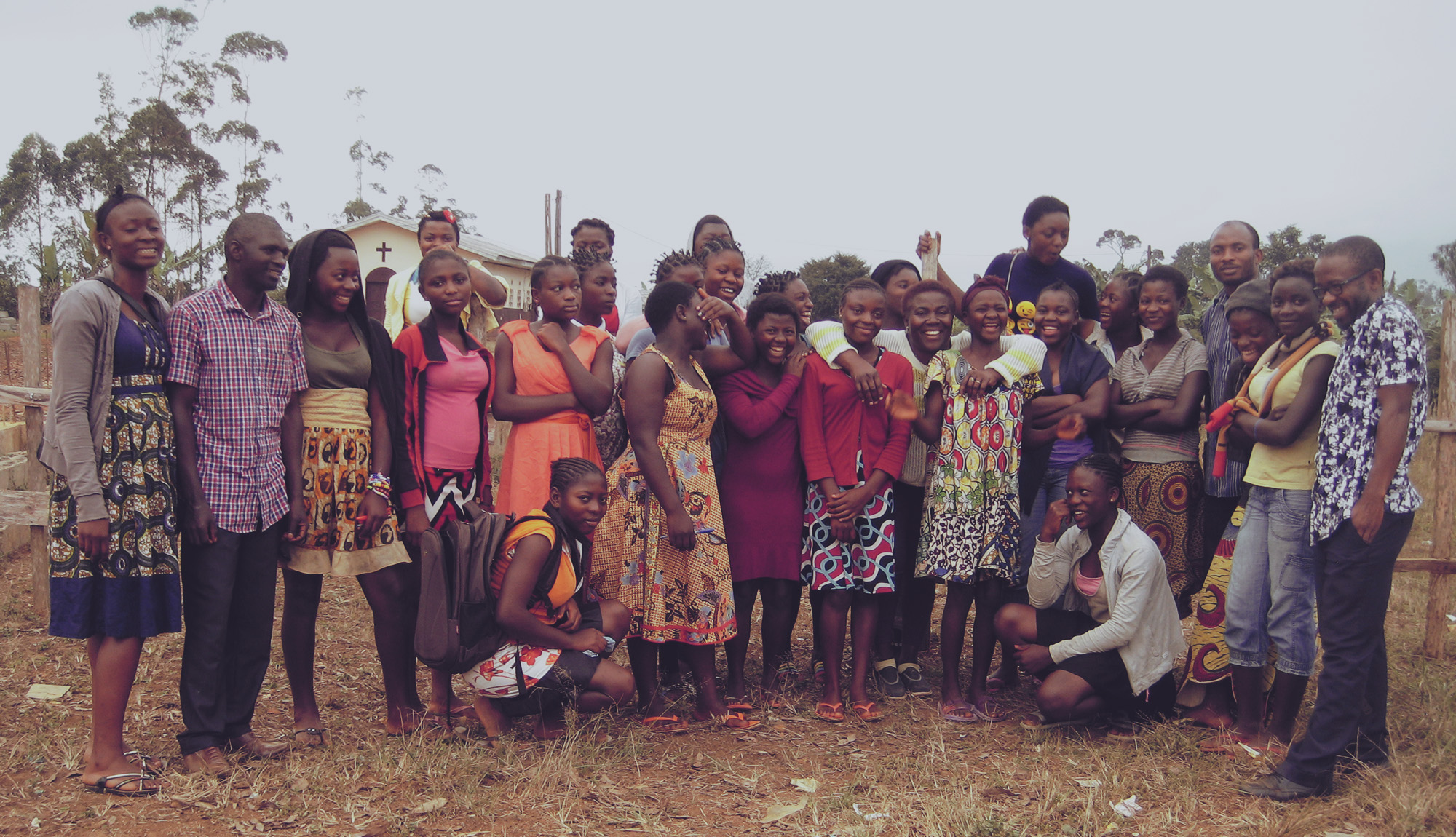
Our Projects
Although Aumazo’s first boarding school is still under construction, Aumazo has already brought hope and change to Bankondji, Cameroon.
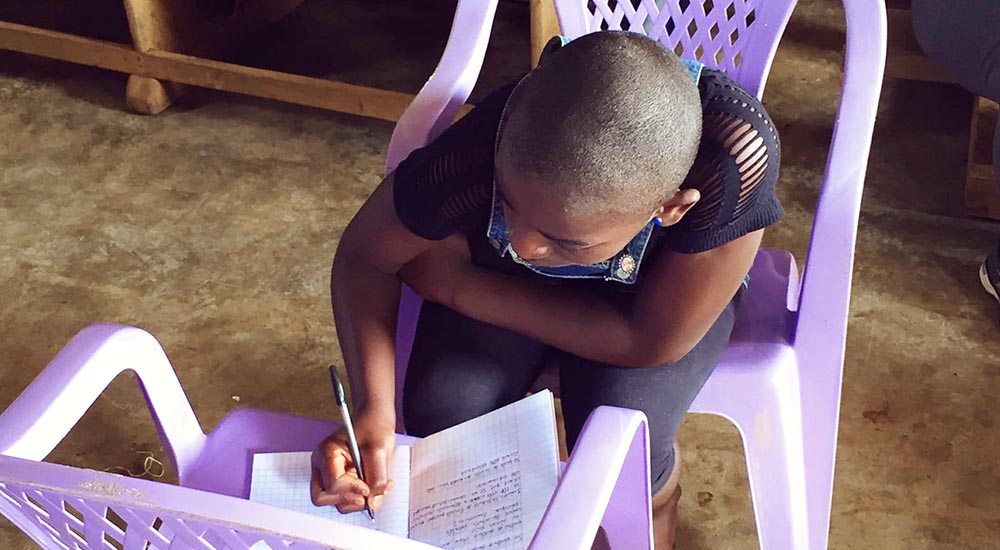
The School
Transforming Lives. Creating New Futures.
Central to Aumazo’s work and vision is its pilot boarding high school for girls in the western Cameroonian village of Bankondji, conceived to equip girls with skills that translate into meaningful livelihoods and promising futures. We completed the first phase of construction in 2007, when we laid the foundation for the school and dormitory. Several years later, we erected the library/study building; using 26,000 blocks manufactured by our sister organization, ZOMABuild. While we are raising funds to complete construction, Aumazo has improved existing structures for use as two classrooms, an office, a computer and a workshop. Water supply and toilet facilities are absolutely critical for maintaining adolescent girls’ attendance in school. The school cannot operate without such facilities. In addition, the water point is needed to provide potable water for village families living nearby, and the all-weather road greatly facilitates access. The nearest water source is more than 2 kilometers away. In addition, a fee is charged; our water point will be free and provide service 24 hours per day/7 days per week. In the absence of such a source, community members obtain (non-potable) water from streams.
Aumazo has submitted its application for the permission to operate the school, and we will complete the clean water supply and sanitary facilities by the inaugural date of fall 2021.
The school’s design is “green,” including its own water filtration system, sewage management, and eventually solar-powered electricity. At present, Aumazo is still planning to build at least three more classrooms and furnish them to welcome the first 50 girls by fall 2021. To achieve our goal of a real “green “cost-effective building, we have to consider various sustainability parameters such as the use of renewable energy to maximize the use of abundant natural resources (solar energy) to reduce the utility bills, use daylight and natural ventilation, use energy energy efficiently and keep surrounding air temperatures close to those of the rural environment. We are working with a local engineer to leverage green-build principles and integrate the structure into its natural environment.
Sign up for Aumazo’s newsletter to track our progress.
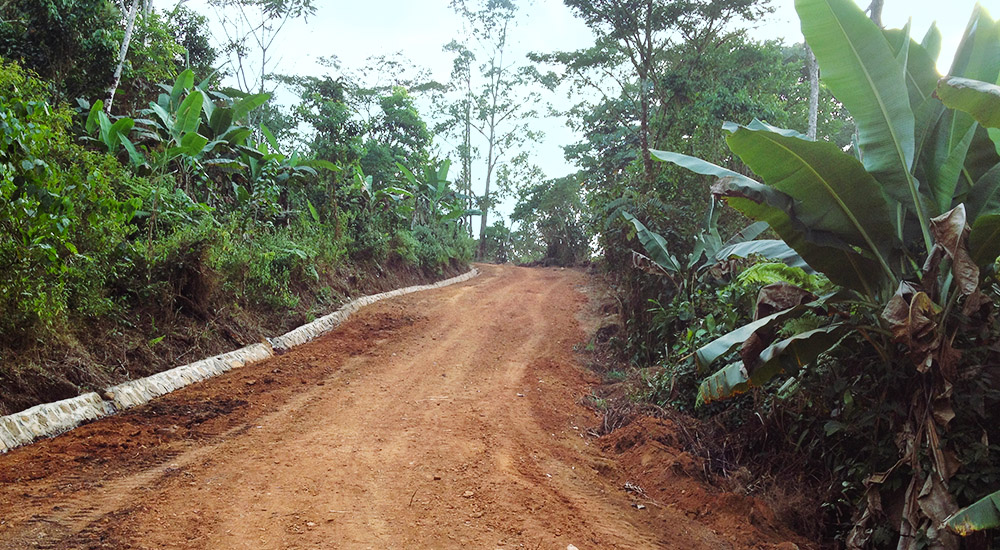
The Road
In 2015, we built a road connecting the village of Bankondji to the site of the Aumazo School. We like to call it “The Road to Change.”
For years, only an overgrown trail connected Bankondji village to the site of Aumazo’s boarding school. Access to the site is impassable during the local rainy season, when the path turned into a river of mud. An Aumazo-funded micro- project replaced this trail with an improved all-weather road to the school site and the nearby farms, enabling year-round access for pedestrians and vehicles of all sizes, thanks to a reliable drainage system. Locals no longer needed to climb through brush to reach their fields. Construction vehicles can now easily access the school site. The people of Bankondji are smiling.
The road project has proven to be much more than infrastructure improvement, it has also renewed villagers’ confidence in our work and our promise. It reminded the community that Aumazo is making progress, clearing a path to a better future for the young women of Bankondji and the village as a whole, though completion of the school itself has taken longer than we hoped.
Please help us finish what we’ve started, and let the girls of Bankondji walk this road with purpose.
Watch Aumazo’s Report “The Road to Change”
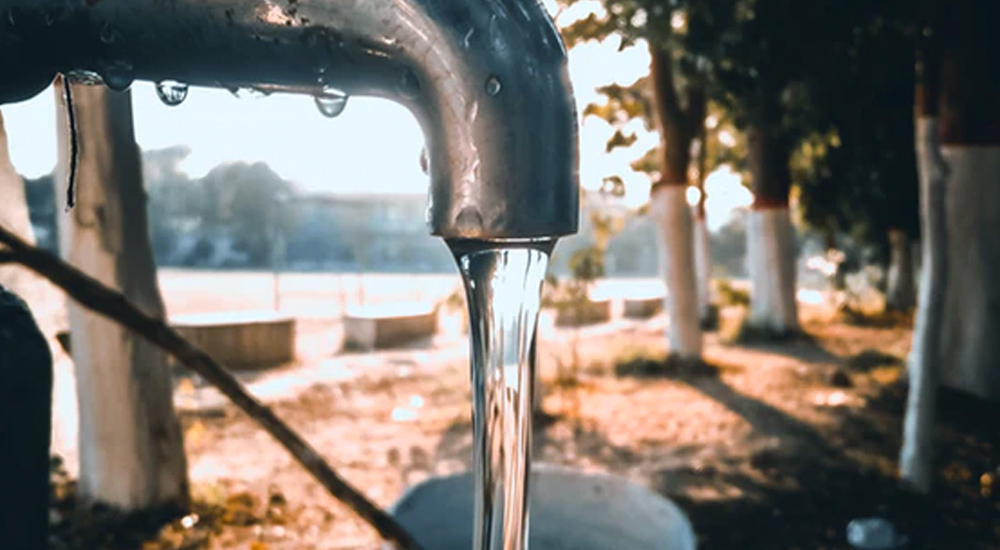
Water Project
Safe Water: A Critical Component
A safe water supply and toilet facilities are absolutely critical for keeping up adolescent girls’ attendance in school. The school cannot operate without such facilities. In addition, a water point is needed to provide potable water for village families living nearby, since the all-weather road greatly facilitates access. At present, the nearest water point is more than two kilometers away. In addition, a fee is charged; our water point will be free and provide service 24 hours per day/7 days per week. In the absence of such a source, community members obtain (non-potable) water from streams.
We expect that girls’ attendance rates at school and the tutoring program will increase greatly, rather than regularly missing a week of classes every month due to their menstrual cycles. We anticipate that the number of hours that women and children living in the catchment area must spend carrying water will decrease sharply. The water quality will improve and the incidence of waterborne diseases will decrease. (See attached sketch of the water system).
We are modifying the existing spring capture on the school’s land. A master well-driller has prepared plans and cost estimates for modifying the spring capture, piping the water to the school, and building the community water point. To date, the pipe system has been constructed. However the water tower, permanent water access and sanitary facilities, and the public water point remain to be completed. (see above for discussion of the school project as a whole).
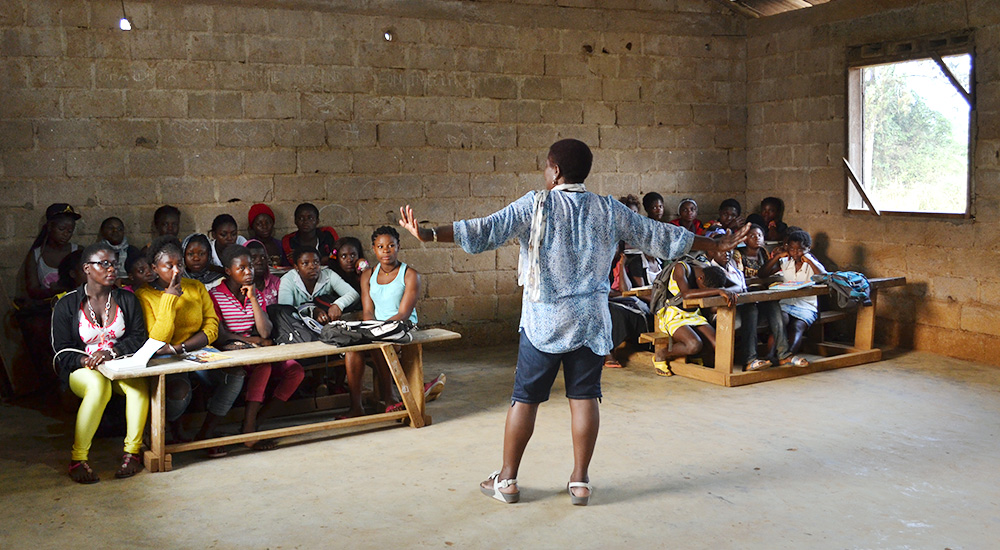
The Tutoring Program
Most girls living in rural areas fail to pass Cameroon’s high-school entrance exams. We developed a program to change that.
Many middle school girls in rural Cameroon cannot understand grade-level work in reading comprehension, French, English, and mathematics, which limits their ability to get into high school. Without intensive academic support, they cannot pass Cameroon’s mandatory high school entrance exams. Thanks to our donors, Aumazo is now providing this essential academic support to students who need it.
In August 2016, we launched our tutoring program, Ça Fait Du Bien/It Makes Good, in Bankondji, Cameroon. The tutoring program recognizes students’ unique learning styles in order to ensure that all students are learning. Since then, nearly 60 seventh and eighth grade girls have attended the three days a week after-school tutoring program, working to bring their skills up to grade level and prepare themselves for success in high school and beyond.
The results have been remarkable. Our pass rate last year reached more than 86% last year (the highest pass rate recorded for girls in the Regional Exam Center for Bafang) and 29 of the successful girls currently have high school tuition scholarships. Not only have the girls improved their comprehension and academic grades in once-challenging subjects; they have also grown more confident, more motivated, and more hopeful about their future education.
Don’t just take our word for it. See what the students and their parents have to say.
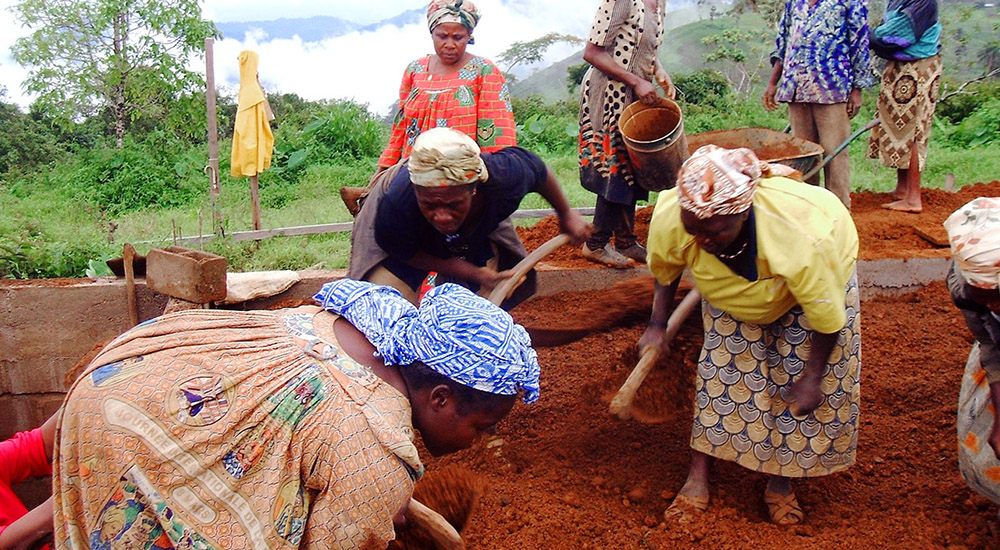
Community Involvement
It takes a village
Things are changing in Bankondji village. Young women have renewed interest in their schoolwork and new hope for their education. Parents, who were once skeptical of the educational style of Aumazo’s tutoring program educational style, are now its staunchest supporters. Farmers, now able to access their fields easily, are singing the praises of the new road. Although Aumazo sparked many of these changes in the village, we could not have achieved them without the support of the people of Bankondji themselves. From the community member who donated land for the new school to the volunteers who helped build the library and the villagers who help maintain the new road, the people of Bankondji are reshaping their future. Aumazo is honored to be part of it.
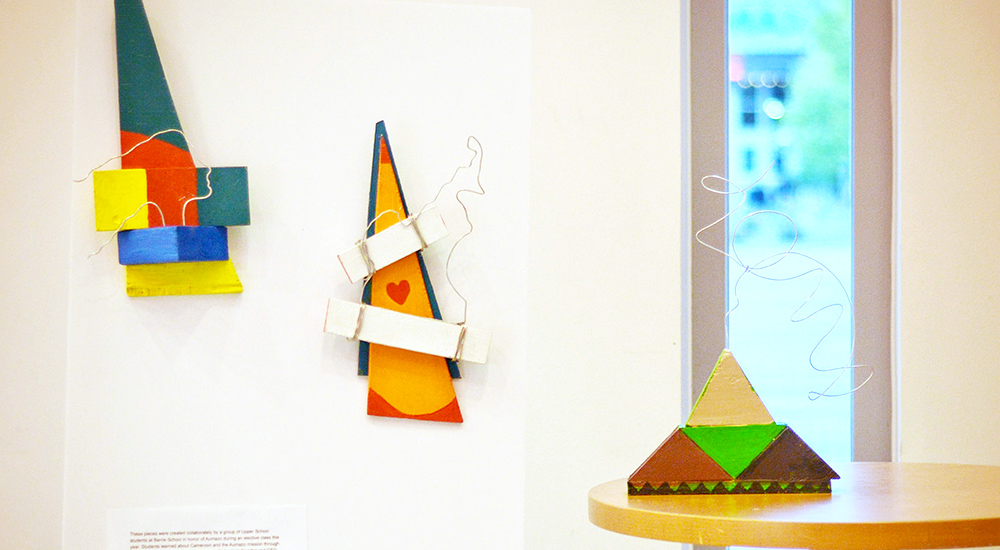
Outreach Program
The Outreach Program is designed to demonstrate to students that STEAM-based ideas are applicable to analysis of everyday problems and dilemmas, whether in the United States or Africa.
Drawing upon our experience in cross-cultural learning and a now completed activity with the Barrie School, Aumazo proposes to work with selected junior high schools in Montgomery County, Maryland with girls in a pilot STEAM outreach and capacity building project. The objective is to increase competence and understanding of STEAM concepts among underprivileged girls through fact-based or experiential learning and exchanges with their peers in Bankondji village, Cameroon.
Teenage girls often regard STEAM subjects as being strange and difficult, and consequently they are diffident about taking STEAM courses. This is due to societal expectations once youngsters hit their teen years. In addition, American high school students often feel impatient with math and technical education in that it is not relevant to practical problems in their real world.
The project will take the form of a series of after school or club activities focused on an everyday commodity, coffee (which is the major cash crop in the Bankondji region). By the end of the semester long program, the students will have acquired knowledge of how to apply STEAM concepts to practical problems, and they will become aware of problems facing their peers in Africa. In addition they will learn leadership skills and responsibility through assigned tasks. They will also gain entrepreneurship skills.

